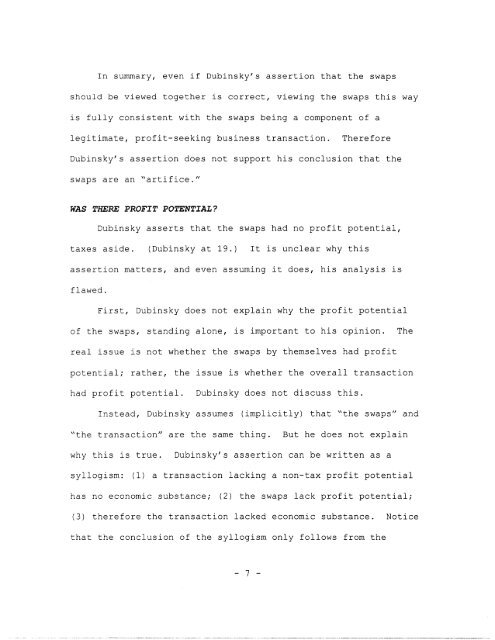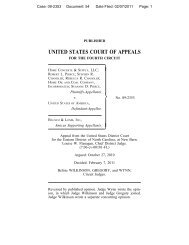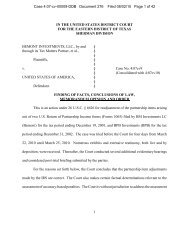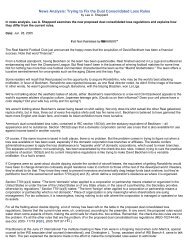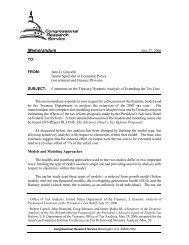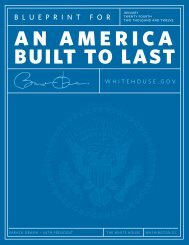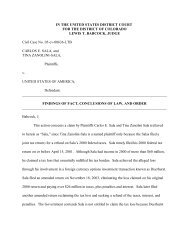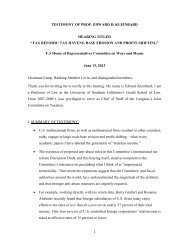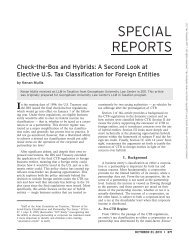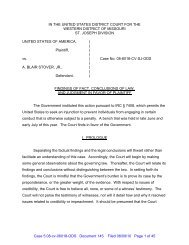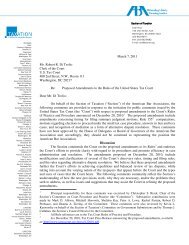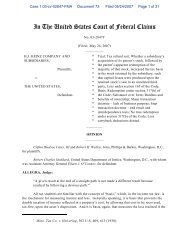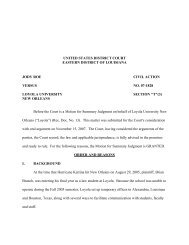United States' Motion to Exclude Expert Testimony of Plaintiffs'
United States' Motion to Exclude Expert Testimony of Plaintiffs'
United States' Motion to Exclude Expert Testimony of Plaintiffs'
- No tags were found...
You also want an ePaper? Increase the reach of your titles
YUMPU automatically turns print PDFs into web optimized ePapers that Google loves.
In summary, even if Dubinsky's assertion that the swapsshould be viewed <strong>to</strong>gether is correct, viewing the swaps this wayis fully consistent with the swaps being a component <strong>of</strong> alegi timate, pr<strong>of</strong>it-seeking business transaction. ThereforeDubinsky's assertion does not support his conclusion that theswaps are an "artifice."WAS THERE PROFIT POTENTIAL?Dubinsky asserts that the swaps had no pr<strong>of</strong>it potential,taxes aside. (Dubinsky at 19.) It is unclear why thisassertion matters, and even assuming it does, his analysis isflawed.First, Dubinsky does not explain why the pr<strong>of</strong>it potential<strong>of</strong> the swaps, standing alone, is important <strong>to</strong> his opinion. Thereal issue is not whether the swaps by themselves had pr<strong>of</strong>itpotential; rather, the issue is whether the overall transactionhad pr<strong>of</strong>it potential. Dubinsky does not discuss this.Instead, Dubinsky assumes (implicitly) that "the swaps" and"the transaction" are the same thing. But he does not explainwhy this is true. Dubinsky's assertion can be written as asyllogism: (1) a transaction lacking a non-tax pr<strong>of</strong>it potentialhas no economic substance; (2) the swaps lack pr<strong>of</strong>it potential;(3) therefore the transaction lacked economic substance. Noticethat the conclusion <strong>of</strong> the syllogism only follows from the- 7 -


